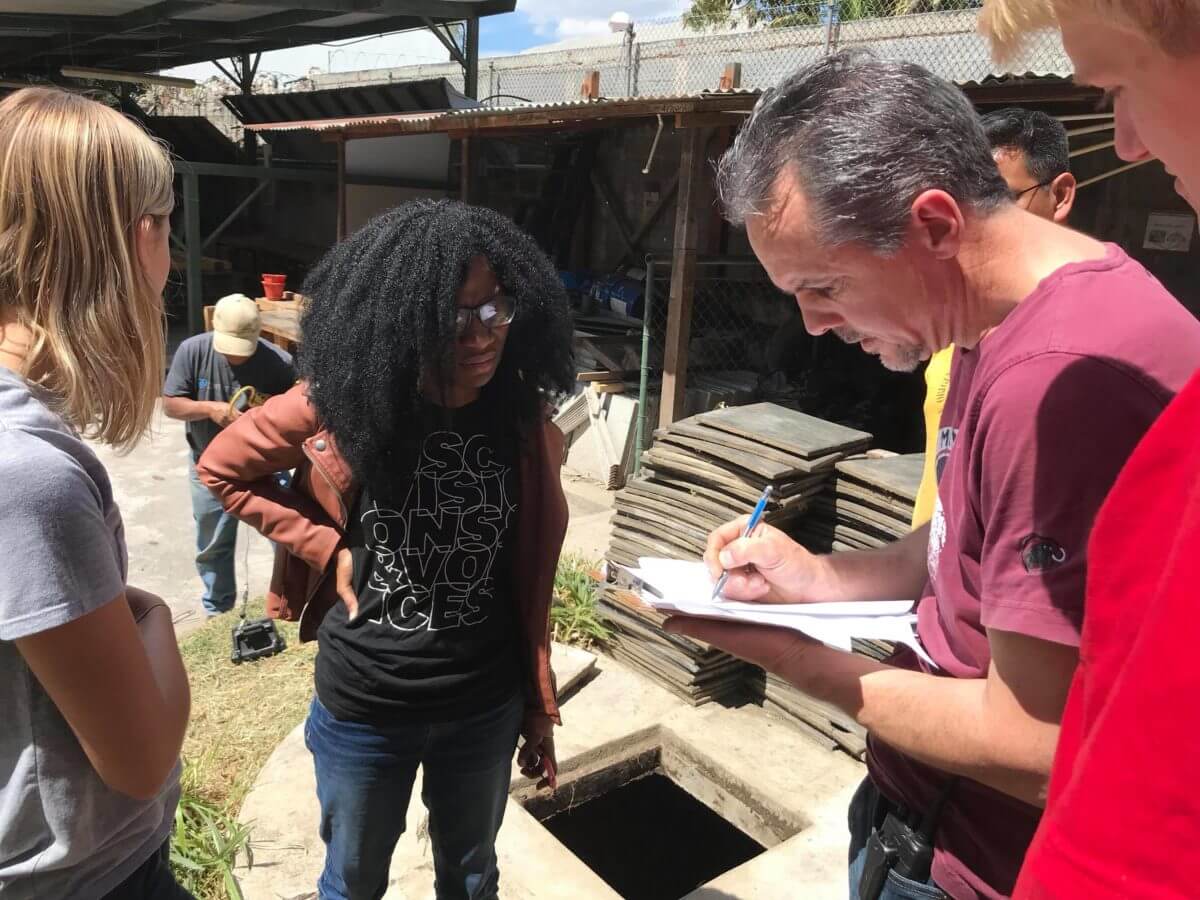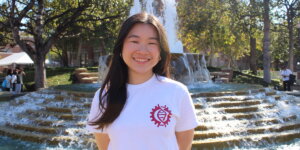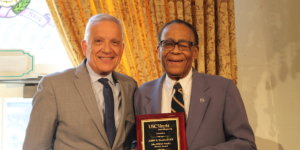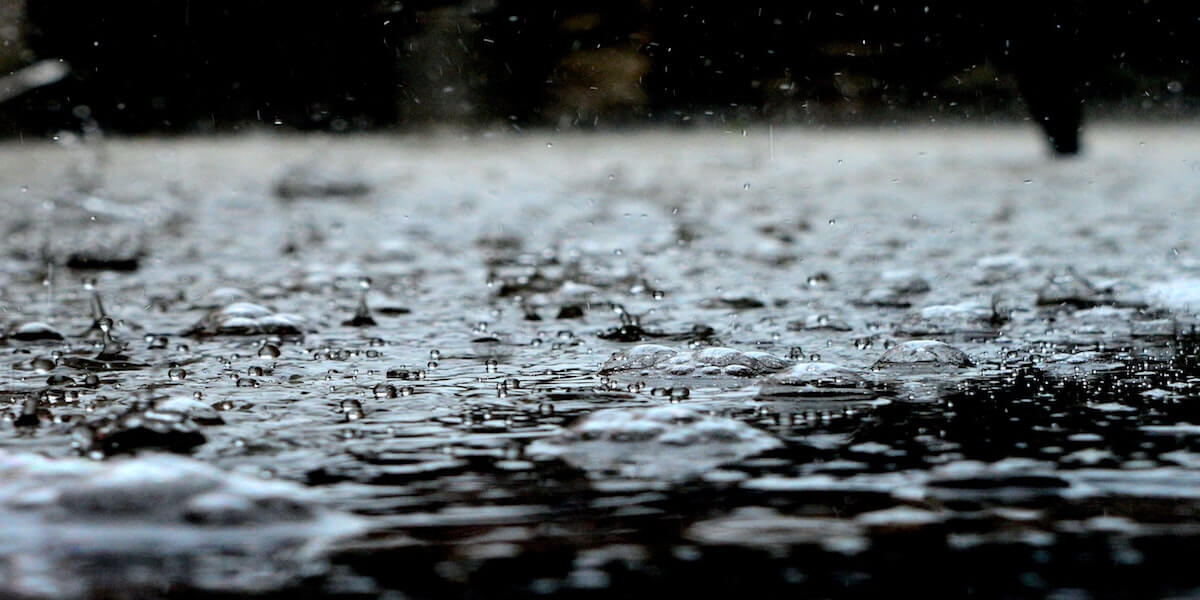
Photo by Pixabay Stock Images
What’s the best way to spend Presidents’ Day weekend? For some it’s basking under the beautiful L.A. sun or going out for bottomless brunches. For students like Sabrina Albrecht and Josh Neutel, it’s traveling 3,000 miles to Antigua, Guatemala to gather data that will be used to develop a sustainable rainwater collection system.
Albrecht, a sophomore majoring in industrial and systems engineering with an emphasis in computer programming and Neutel, a junior majoring in chemical engineering with an emphasis in sustainable energy, are project managers for USC’s Engineers Without Borders (EWB-USC). With a mission to tackle problems in some of the world’s toughest areas, these students are taking themselves out of the classroom in order to take on real-world problems.
EWB-USC has a five-year partnership with Common Hope, a non-profit organization that works with communities in Guatemala, Central America’s largest country. Common Hope helps families with child education, housing, health care and family development. Started in 1986, they celebrated their 2,000th high school graduate in 2017.
According to Common Hope, 70 percent of Guatemalan families live in less than sufficient living spaces and malnutrition affects half of the country’s 16 million people. Organizations like Common Hope, along with motivated students like Albrecht and Neutel, understand that poverty is a multi-dimensional issue. EWB-USC is helping to create a secure and sustainable foundation in Common Hope’s campus – a space hundreds of families depend on to raise their children and live overall improved lives.
EWB-USC with mentor Peter Kraut at Common Hope in Guatemala. Photo by Sabrina Albrecht.
In all, six students traveled to Antigua during the 2018 Presidents’ Day weekend. The project objective is to relieve the swelling demand on Common Hope’s filtration system – a system set up by EWB-USC just a year ago. Maintaining and irrigating green spaces at the Family Development Center will increase the life of the existing filtration system most needed for consumption and hygiene.
This weekend trip was the first stage of the rainwater collection system project in Antigua. Albrecht and Neutel explained the two stages of these projects: assessment and implementation.
At this stage, they create a blueprint for the entire project, uncovering critical variables like where the optimal rainwater collection locations are on Common Hope’s campus and what measurements are needed to develop the most efficient collection system. They then take their assessments to begin planning how to develop the most effective deliverable.
Before returning to Antigua for the implementation stage later this year, the team will be knee-deep in the planning and development process. Luckily, Albrecht and Neutel are keen on utilizing their resources, including the parent chapter of Engineers Without Borders and their industry professional mentor Peter Kraut, president of South Coast Engineering Group.
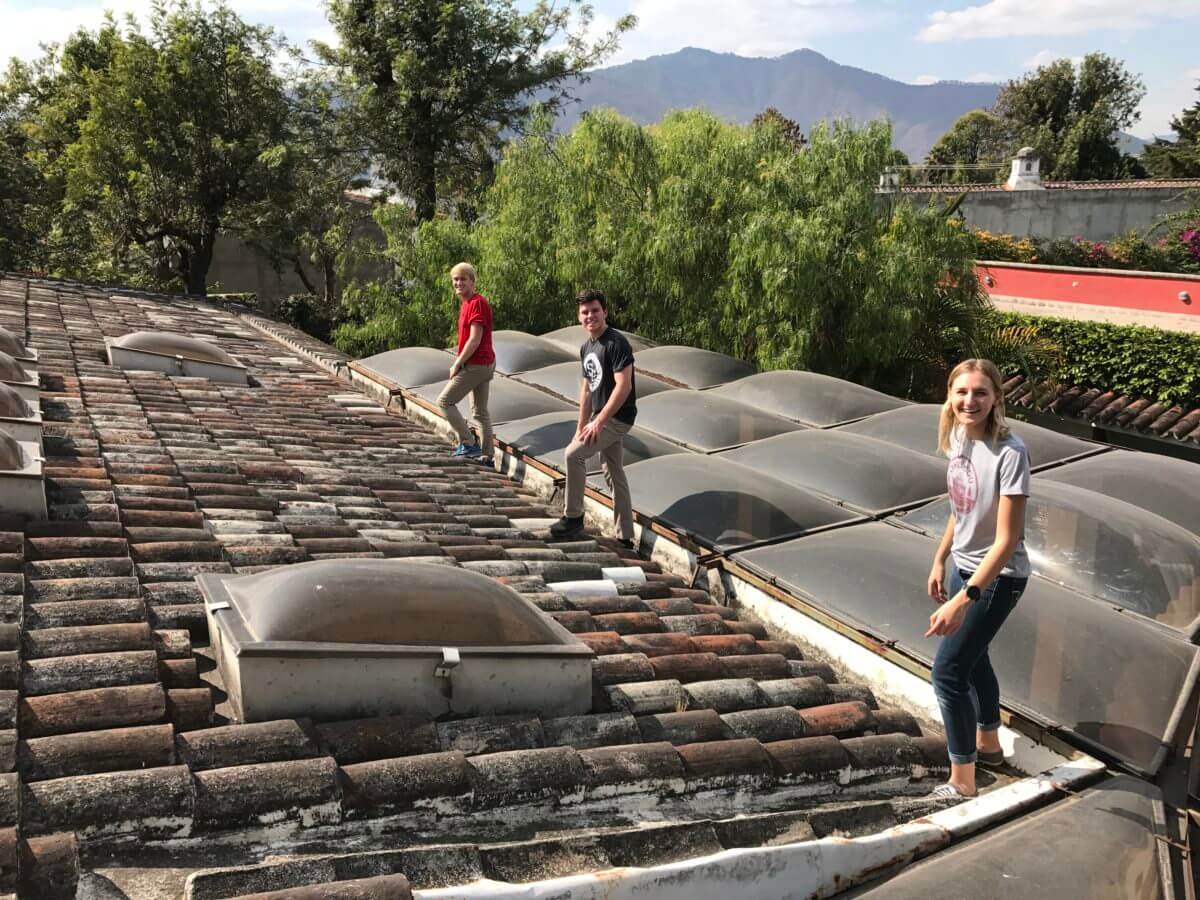
EWB-USC assessing Common Hope’s campus. Photo by Sabrina Albrecht.
Common Hope Country Director Rebecca Sanborn expressed that working with USC students has been a positive experience. “They are willing to learn, to stick to the project, respect the chapter’s leaders and program managers and their commitment to come to Guatemala to learn more about our program and what we do…we had fun and the work got done.” She further stated that she hopes the partnership between Common Hope and EWB-USC continues for future projects.
Suffice it to say these students don’t need much micromanaging. Even though their resources serve as indispensable guides through this entire experience, the true learning for them as students comes from doing the grunt work. This involves having weekly project meetings and individually taking on assignments – in addition to their schoolwork, part-time jobs and internships. USC’s Engineers Without Borders is hopeful to implement the rainwater collection system by the start of next school year.
Published on April 12th, 2018
Last updated on April 8th, 2021




